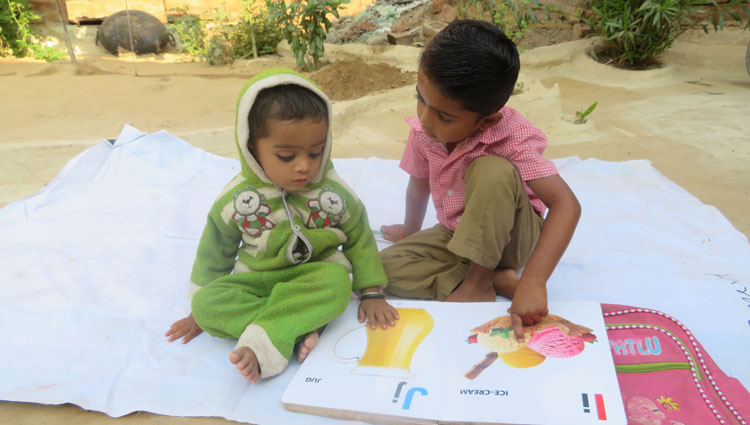
Proper education to the children can be the game changer
Philosophy
ABSSS believes in rachna (creation) and sangharsh (non-violent struggle) to empower the most marginalised and exploited sections. Hence, ‘Antya ka Uday’ – rise of the last – has been the core developmental value statement of ABSSS; its meaning is reflected in all developmental interventions and initiatives to build a society where adivasis, dalits and women get equal opportunity (socially, economically and culturally) to live and work with dignity.
Vision
To see a prosperous society where all have equality, access to social justice and opportunities for better livelihood.
Mission
Advocacy and lobbying for the rights of adivasis and dalits and strengthening local institutions in the Bundelkhand region to ensure self-empowerment for sustainable development.
Guiding Principles
In seeking to achieve the mission and carry out its societal commitments, ABSSS embraces the following guiding principles in all its actions:
- People centres and rights-based development interventions
- Public advocacy and lobbying as an instrument to promote a pro-poor and enabling environment
- Interventions leading to self-reliance of the community
- Stakeholder participation in all programme interventions
- Gender sensitive programme planning, implementation and monitoring process
- Maintain accessible, responsive and cost-effective programmes and services
- Dedicated to ongoing self-assessment and improvement in all that we do
- All interventions would strive towards qualitative and sustainable output
- Maintain transparency in work culture and accounting for social audit.
Objectives
- Advocacy and lobbying with district and state administration to protect the interests of Kols, dalits and other deprived sections of society, and their rights – land rights, bondage, sexual atrocities against Kol women, removal of contract system for minor forest products, and access and control over natural resources, etc.
- Rural entitlement and legal support on providing land titles to the Kols
- Natural resource management – promoting agriculture practices among Kols, dalits and deprived sections through land bunding and watershed management, storage facilities and marketing of minor forest produce
- Rural development initiatives – formal and non-formal education, health and savings programmes
- To impart education to backward communities who have no access to education
- Strengthening panchayati raj to promote women’s leadership and ensure participation of tribals, SCs, OBCs and women
- To establish a centre for training, necessary education and social security of SCs, downtrodden and poor people of society
- Programmes concentrating on economic and social development of women
- To celebrate cultural and traditional festivals of the community to bring about community feeling in society
- To establish an equitable society with respect to all religions and to carry out activities for creation of social harmony in society
- Formation, nurturing and strengthening of people’s organisations so that the process of social justice, equity and opportunities will be available to the community
